UBITECH’s Network Systems & Software (NSS) research group specializes in the design and development of advanced software solutions that shape every aspect of future networks, particularly within the emerging landscape of 6G technologies and sophisticated edge-cloud connectivity environment.
Key Research Areas:
- Infrastructure and Service Management: NSS delivers customer-centric, AI-powered, zero-touch orchestration of network resources and services. Utilizing our MAESTRO orchestration framework, we enable intelligent, user-defined allocation and dynamic management of application functions and network services across multi-domain environments through standardized and secure interfaces.
- Infrastructure Landscape: Our expertise extends to heterogeneous infrastructure programmability, ensuring optimal network flexibility and responsiveness. NSS leverages advanced SDN-based solutions and technologies such as Kubernetes deployments and P4, facilitating dynamic network adaptation and efficient resource utilization.
- Infrastructure Visibility: Through comprehensive deep-system telemetry and insightful analytics, NSS provides unparalleled visibility into network performance. This capability enhances real-time monitoring, predictive maintenance, and proactive network management.
- Network Security & Trust: NSS emphasizes robust, policy-based, zero-trust private networking approaches, ensuring secure, reliable, and trusted communications and operations within distributed and complex network environments.
Technological Domains
- Orchestration platform solutions: Development and innovation of a unique orchestration platform managing end-user service requests across diverse, multi-technology infrastructure domains, with integration capabilities into standardized orchestration and interfacing solutions.
- Monitoring and Automation Solutions: Integration of both application-level and infrastructure-level telemetry, combined with smart analytics and real-time event handling.
- Smart Intent Translation: Research and application of advanced Large Language Model (LLM) techniques for smart translation of end-user intents into actionable service order requests.
- Advanced Network Programmability: Enhanced infrastructure programmability and management over the Radio, Transport, & Core 6G Network segments leveraging SDN-based solutions.
- Extreme-edge IoT Technologies: Covering advanced connectivity management at the extreme network edge, enabling effective edge computing scenarios and IoT-device management.
- O-RAN Integration and Interworking: Developing innovative solutions for efficient integration and interworking of O-RAN with Service Management and Orchestration (SMO) frameworks.
- Vertical Sector Integration: Establishing strong collaborations and real-world demonstrators in sectors such as Industry/Manufacturing, Logistics, Automotive, Agriculture, and eHealth.
Specialized Expertise
- Geo-distributed cloud native container orchestration across the compute continuum: As modern networks become more decentralized and dynamically reconfigurable, the management of cloud-native applications distributed across multiple geographical locations has become essential. At NSS group we apply pioneering research methodologies, combining sophisticated techniques for workload optimization, adaptive resource allocation, and intelligent service placement, ensuring optimal performance and resilience.
- Network-as-a-Service via programmable Radio, Transport, & Core 6G Network Functions: The growing demand for flexible and dynamically scalable network infrastructures highlights the importance of Network-as-a-Service (NaaS). NSS uniquely combines programmability and virtualization across radio access, transport, and core networks, providing fully customizable and on-demand network functionalities aligned with evolving service requirements.
- Telemetry-empowered AI services for increased automation: With network complexity growing exponentially, proactive and automated network management becomes critical. NSS develops innovative solutions that leverage advanced telemetry combined with artificial intelligence, enabling real-time analytics, predictive management, and automated decision-making processes to significantly enhance network efficiency and reliability.
- Secure and Zero-Trust networking on-the-fly: The seamless interconnection of diverse non-trusted domains with different application and service provisioning requirements is fundamental for the dynamic scaling of any management system according to customer needs. At NSS group we provide unique solutions for efficient and dynamic zero-trust connectivity across isolated private domains, without the need for complex and time-consuming VPN-based establishments.

Description
COP-PILOT, develops a Collaborative Open Platform framework geared towards orchestrating end-to-end services across diverse industry domains. In crafting an open platform, COP-PILOT provides a flexible solution designed to effectively manage various industry sectors while ensuring robust security, automation, and intelligence features. Regarding interoperability, the framework seamlessly integrates with underlying technologies, ranging from IoT platforms to core infrastructure, facilitating collaboration across the compute continuum. Furthermore, COP-PILOT empowers the development of advanced cross-sector applications by offering support for cutting-edge network services, thereby enabling heightened security, resource management, and automation capabilities.Key Contributions
UBITECH’s NSS team serves as the Project Technical Manager, guiding the technical direction of the collaborative platform. As the main editor of the project's core concept, the team plays a central role in the development of the service orchestration platform. Major contributions include the architectural design of the entire system and ensuring seamless integration with diverse technologies. Responsibilities also cover integration coordination and piloting scenario evaluations to validate performance across sectors.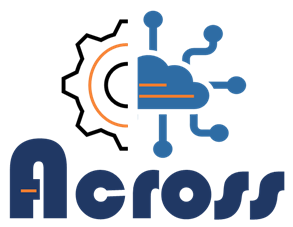
Description
ACROSS project aims to develop an end-to-end service and management platform for next generation networks that will help achieve improved performance, adaptability, growth, energy efficiency and automation. To do this, the platform will utilise a number of innovative technologies as well as implement a system of a highly distributed grid of domain-level orchestrators overseen by another cloud-managed multi-domain orchestrator.Key Contributions
As Project Technical Manager, UBITECH’s NSS team coordinates the technical implementation and strategic direction of the ACROSS project. The team has authored the foundational concept and is instrumental in the design of both the service orchestration platform and overall architecture. Work focuses on enabling scalable orchestration between domain-level and multi-domain orchestrators. Integration support and testing scenario evaluations ensure a robust and adaptive service framework.
Description
FIDAL project aims to enable future technologies to run at efficient capacities, by developing, testing and demonstrating innovative infrastructure fit for supporting evolved 5G and the arrival of 6G. The project's solutions will be accessible and open to third parties allowing specialists and players to test their innovations and advancements utilising evolved 5G and 6G.Key Contributions
UBITECH’s NSS team is a main contributor to the FIDAL platform, concentrating efforts on the orchestration layer. The team facilitates efficient service management and deployment across advanced 5G and future 6G infrastructures. Major support is also provided for application integration across internal pilot cases and external third parties. This contribution fosters a flexible and open environment for testing innovative technologies.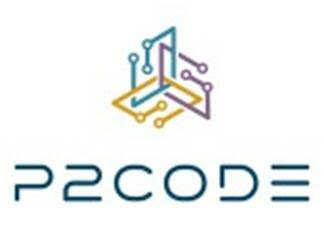
Description
INCODE project plans to develop an open platform for deploying and managing end-user applications over distributed, heterogeneous and trusted IoT node infrastructures. The envisaged platform integrating state-of-the-art IoT, edge/cloud computing and networking platforms will manage end-to-end environment resources according to end-user requests and application content. It will also accelerate development and deployment processes on large swarms of devices, split the application workload tasks efficiently into microservices and provide fast reconfiguration of required resources. Ultimately, the platform will provide IoT device and system authentication, data management and application deployment and guarantee integrity with respect to the deployed applications, the shared data and the generated data.Key Contributions
As Project Technical Manager, UBITECH’s NSS team leads the definition and coordination of INCODE’s technical framework. The team designs the service orchestration platform and the system’s architectural foundation, supporting trusted deployment across heterogeneous IoT and edge environments. Emphasis is placed on secure resource management and dynamic application provisioning. Integration and piloting scenario evaluations validate the platform’s readiness for real-world operation.
Description
INTACT project plans to develop an integrated software toolbox to improve cybersecurity. This toolbox aims to maximise security and data privacy while keeping costs and computing resources low. By using virtual dataspaces, INTACT could help safely predict and prevent cyber threats without affecting real systems. AI automation and open standards should improve scalability and interoperability of services and data. Researchers will also focus on sustainability and reducing environmental impact, aiming to enhance EU data security and lower energy use across industries like telecom, healthcare, and smart cities.Key Contributions
In INTACT, UBITECH’s NSS team leads WP5 activities, overseeing the integration of cybersecurity tools and services. Functions as the primary integrator for merging diverse solutions into a unified platform. Responsibility includes managing final system testing and evaluation to ensure performance benchmarks are met. The team also delivers the integration platform supporting the overall deployment pipeline.
Description
AC3 project seeks to develop an agile framework to efficiently manage data in the cloud-edge computing continuum. The envisaged framework plays a critical role in increasing service scalability, agility and effectiveness. With a microservice architecture, it is capable to adapt to different network contexts and events, such as lack of resources, data deluge or movement of data sources.Key Contributions
UBITECH’s NSS team leads technical activities under WP3 in the AC3 project, focusing primarily on the adaptability of smart AI-based solutions for cloud-edge continuum management. The team delivers one of the main lifecycle management orchestration platforms, enabling adaptive and scalable service behavior. Collaborates with RedHat to integrate the UC3 solution, ensuring compatibility with evolving edge environments and contributing to platform’s flexibility and resilience.
Description
6Green project envisions 5G and 6G networks and vertical applications cutting their carbon footprint by a factor of 10 or more. The project will make the most of cloud native technologies and service-based architecture introduced in 5G, to evolve and develop network capabilities focused on the new generation of services. 6Green also intends to improve the flexibility, scalability and sustainability of the global ecosystem.Key Contributions
UBITECH’s NSS team contributes to the 6Green project by developing and validating one of the core use cases, with a focus on assessing energy efficiency across the service lifecycle. Evaluation activities emphasize measurable impact in reducing the carbon footprint of next-generation networks. The team also supports the integration process from a service provisioning perspective, ensuring seamless orchestration and deployment within the overall architecture. These contributions align with the project's objective to deliver sustainable, high-performance 5G and 6G network solutions.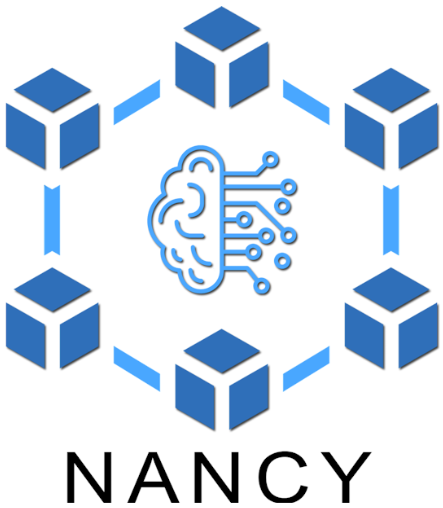
Description
NANCY project aims to change this by developing a revolutionary, safe and intelligent architecture for improved security and efficiency in Beyond 5G wireless networks. The architecture will use AI and blockchain technologies to boost safety, improve data management technologies, and develop new solutions for increased efficiency, communication, and resource allocation and management.Key Contributions
As a key contributor to the NANCY project, UBITECH’s NSS team supports the architectural design of the secure, AI-enabled networking framework. Plays a major role in the integration of specific use cases, ensuring alignment with project objectives. The contribution strengthens the deployment of blockchain and AI technologies for enhanced network safety and data management. These efforts advance the vision for efficient Beyond 5G architectures.
Description
PROTEUS-6G project leverages novel software-programmable, photonic-integrated-circuit based subsystems, through advanced packet-optical x-haul networking infrastructure. These are operated under an intelligent software management system, streamlining network operations. By enabling flexible functional splits and adapting to dynamic network demands, PROTEUS-6G ensures the efficient use of resources. The consortium’s focus spans from academia to industry, promising groundbreaking solutions in wireless-optical connectivity.Key Contributions
UBITECH’s NSS team leads the implementation of O-RAN extensions to enable functional splits and integrated policy mechanisms. These enhancements align the orchestration platform with programmable, adaptive wireless-optical architectures. Input ensures flexibility in network resource management and readiness for dynamic 6G use cases. This work positions the project at the forefront of intelligent infrastructure design.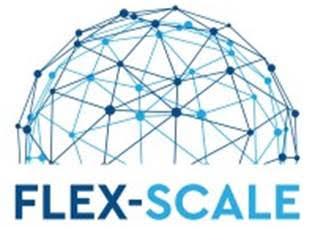
Description
FLEX-SCALE project performs disruptive research on optical x-haul network approaches related to optical switching nodes and their transceiver interfaces that enable flexible capacity scaling (>10 Tb/s rate per interface, >10 Pb/s capacity per link and >100 Pb/s throughput per optical node), based on utilisation of ultra-high bandwidth photonic/plasmonic technologies and the efficient exploitation of optical spatial and spectral switching (UWB/SDM). The network elements will be controlled by an ML-enabled SDN control plane that incorporates new resource allocation algorithms, enabling autonomous programmable disaggregated networks. It will achieve record energy efficiency (sub-pJ per switched/transmitted bit) and low cost, enabled by photonic integration and optical transparency and the optimised traffic routing across network layers and segments, thus improving network QoS as per 6G requirements.Key Contributions
Within FLEX-SCALE, UBITECH’s NSS team delivers the policy mechanism integrated with the TFS solution across IP and optical layers. This mechanism supports intelligent resource allocation and orchestration in ultra-high-capacity networks. Contributions facilitate compatibility with energy-efficient, programmable infrastructure components. The result addresses critical scalability and performance demands of next-generation 6G networks.
Description
Int5Gent project targets the development of a complete 5G system platform for the validation of advanced 5G services and Internet of Things solutions. The project builds on a suite of 5G core technology solutions developed under the 5G-PPP. These include flexible multi-RAT baseband signal processing, beam steering, mmWave technology solutions at 60 GHz and 150 GHz bands, a hardware-based edge processor, GPU processing capabilities, innovative 5G terminals and elastic SDN-based photonic data transport. The overall platform is implemented in two extended test beds, which include actual field deployed segments, managed by the network operators of the consortium.Key Contributions
UBITECH’s NSS team served as Project Technical Manager, leading the design and coordination of the complete 5G system platform. Developed the service orchestration layer and overall architecture, focusing on scalable integration across heterogeneous 5G technologies. Oversaw system-wide integration activities and piloting evaluations across two extended testbeds in Athens and Barcelona. The platform demonstrated reliability and adaptability for advanced 5G and IoT services.
Description
5G-INDUCE project targets the development of an open, ETSI network functions virtualisation-compatible, 5G orchestration platform for the deployment of advanced 5G network applications. The project focus is directed towards the Industry 4.0 service deployment environment.Key Contributions
As Project Technical Manager, UBITECH’s NSS team directed the architectural design and orchestration strategy of the 5G-INDUCE platform. Shaped the project’s core concept and led the development of a network functions virtualization-compatible solution. Integration activities were executed to support Industry 4.0 service deployment, with piloting scenarios evaluated for robustness. These contributions ensured the orchestration platform met industrial-grade standards.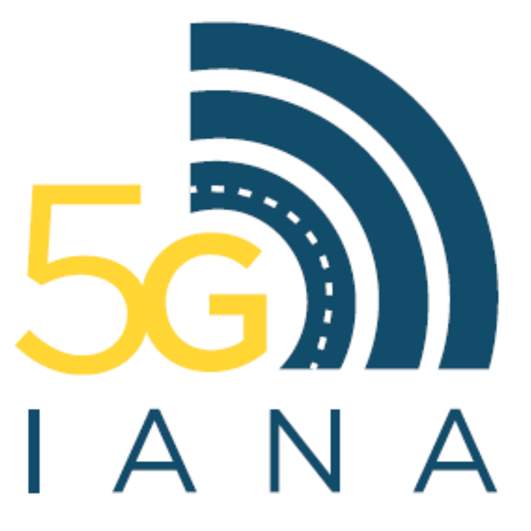
Description
5G-IANA project develops an Automotive Open Experimental Platform (AOEP) as an integrated hardware and software set of resources providing SMEs and other companies, in the automotive-related 5G-PPP initiative, the opportunity to develop, implement and test their services. The AOEP provides computer, communication and transport infrastructure as well as management and orchestration components and is coupled with an advanced NetApp Toolkit tailored to the automotive sector. The project identifies and validates market conditions for innovative, sustainable business models to support a long-term roadmap towards the EU-wide development of 5G in automotive services.Key Contributions
In the 5G-IANA project, UBITECH’s NSS team held the role of Project Technical Manager, guiding the development of the Automotive Open Experimental Platform. Delivered a comprehensive orchestration platform supporting integration of NetApps and infrastructure resources tailored to the automotive sector. Integration processes were managed to ensure consistency across services and test environments. Piloting activities validated the platform’s capability to support innovative 5G applications.
Description
TeraFlow project develops a new type of secure cloud-native SDN controller that fundamentally advance innovation beyond 5G networks. The controller integrates with the existing network functions virtualisation and multi-access edge computing structures, provides pioneering properties for flow management as well as optical/microwave network equipment integration, and incorporates security through machine learning and forensic evidence for multi-tenancy based on distributed ledgers. The project targets the traditional telecom operators and edge and hyperscale cloud providers offering substantial business agility with innovative and highly dynamic network services with zero-touch automation features.Key Contributions
UBITECH’s NSS team contributed significantly to the TeraFlow programmability layer, with a focus on policy integration for secure and cloud-native SDN control. Active participation in the ETSI TFS SDG helped shape standardization efforts in programmable network management. Work supported advanced flow control, automation, and orchestration across optical and edge domains. These efforts established a foundation for scalable, AI-driven network infrastructure beyond 5G.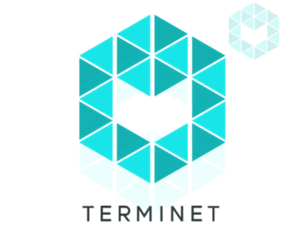
Description
TERMINET project develops a novel next-generation reference architecture. Its main aim is to simplify the connection of a vast number of different devices through a flexible SDN-enabled middleware layer. To improve supply chain processes, the project designes an IoT-driven decentralised and distributed blockchain framework within manufacturing. TERMINET’s approach is tested in real-life situations such as energy, smart buildings, smart farming, healthcare and manufacturing.Key Contributions
As a key architectural contributor in TERMINET, UBITECH’s NSS team supported the design and integration of an SDN-enabled IoT middleware. Use case deployment was facilitated across domains like healthcare, smart buildings, and manufacturing. Integration support enabled a blockchain-based, decentralized framework to function effectively in real-world scenarios. This contribution helped realize a flexible and secure next-generation connectivity environment.
Description
SANCUS project targets to develop an analysis software scheme of uniform statistical sampling, audit and defence processes. The notions of cybersecurity and digital privacy are fused into optimisation strategies to acquire an optimum defence recommendation in the context of the telecommunications network environment. The project proposes a scheme that combines unique modelling of the Internet of Things units, as well as innovative Artificial Intelligence-driven game techniques. It organises pilot use cases to evaluate the scheme performance across firmware, virtualisation and management software layers.Key Contributions
UBITECH’s NSS team acted as Technical Manager in the SANCUS project, driving development in 5G security and trust incident handling. Contributed to the design and integration of a testing platform capable of assessing threat mitigation strategies. Efforts focused on AI-based, game-theoretic approaches to cybersecurity and defense optimization. The team’s role ensured comprehensive evaluation across firmware, virtualization, and management layers.Maestro: A 6G-ready Multi-domain End-to-End Service Orchestrator
Maestro is a 6G-ready, cloud-native service orchestration platform built to manage the full lifecycle of services across multi-domain, geo-distributed, and multi-stakeholder environments. It orchestrates services from business intent down to resource execution, leveraging standardized TMForum APIs for seamless integration across services, resources, parties, and locations. At its core, Maestro coordinates a distributed grid of domain-level orchestrators, enabling vertical-specific deployments across diverse industries.
Maestro supports programmable orchestration objectives and uses BPMN workflows for dynamic, intent-aware decision-making. To integrate with the underlying domain resources, Maestro supports native integration with Kubernetes and Helm libraries, while also integrating with Prometheus and Grafana to ensure user-friendly end-to-end observability at scale. A Zero-Trust Integration Fabric underpins cross-domain interactions, enforcing strict security, identity-awareness, and separation of concerns. Maestro also aligns with GSMA’s Open Gateway vision, enabling network-as-a-service (NaaS) exposure to vertical application developers through standardized APIs and concrete prototypes.
Rooted in the open-source ETSI OpenSlice Software Development Group (SDG), Maestro represents a future-proof orchestration backbone designed to meet the complexity, scale, and automation needs of next-generation 6G ecosystems. It delivers the intelligence, openness, and modularity required to bring agile, autonomous orchestration to the forefront of digital infrastructure evolution.
Supporting Technologies:
- Standardized TMForum APIs for Service, Resource, Party, and Location management,
- BPMN-based orchestrations workflows,
- Kubernetes & Helm runtime management,
- Prometheus and Grafana integration for deep service telemetry,
- Standardized integration with OSS platforms, such as ETSI OpenSlice,
- Modular Java Quarkus & Golang SBA framework.
Multi-domain Container Workload Scheduler across the Compute Grid leveraging Location and SLA Metadata
This solution empowers dynamic multi-cluster provisioning and lifecycle management of applications across an entire cloud-edge continuum. Built on RedHat’s Open Cluster Manager (OCM), the solution offers orchestration of complex applications across multiple locations with different hardware capabilities, while considering SLA constraints, and location metadata. Supporting both vanilla Kubernetes and OpenShift, it ensures broad compatibility with diverse client environments. Moreover, the solution leverages open-source networking tools, such as Skupper or Submariner. for multi-cluster communication, which provides secure and transparent service connectivity across geographically distributed Kubernetes clusters. The seamless integration with Prometheus platform enables custom metrics and automated scaling, thus supporting scaling based on real-time application needs, ensuring consistent service quality across deployments over the entire cloud-edge continuum.
Supporting Technologies:
- RedHat OCM,
- Kubernetes,
- OpenShift,
- Skupper
Intelligent Business Automation Platform
The platform transforms how users interact with complex service orchestration systems by introducing an LLM-powered Intent Assistant for intuitive, business-driven service ordering. Users can express high-level service requirements in natural language, which are then translated into precise business intents and SLAs through interactive dialogue. These intents are automatically mapped across the orchestration stack—into service, domain, and controller-level blueprints—enabling seamless provisioning with minimal manual effort. By leveraging standardized TMForum APIs and integrating tightly with the Maestro orchestrator, the platform supports full lifecycle intent management across services, resources, parties, and locations. This hierarchical automation bridges the gap between business expectations and technical execution, creating a scalable foundation for 6G-era service ecosystems. The result is an intelligent, user-centric experience that accelerates service delivery while maintaining domain-specific visibility and control.
Supporting Technologies:
- Standardized TMForum APIs for Intent Management
- LLM-based agents for intent provisioning & fulfillment
- Integration with Maestro via TMF Service, Resource, Party, and Location APIs
Zero-Trust Connectivity Fabric across Isolated Private Domains
The solution enables secure, automated, and policy-driven integration of remote infrastructure domains into a unified orchestration ecosystem. Leveraging a dedicated cloud-managed Zero-Trust Integration Fabric (ZIF), the system establishes end-to-end encrypted tunnels between isolated domains using enclave-protected ZIF clients and a global controller. The platform supports dynamic onboarding of new domains, eliminating the need for manual VPN setups or complex user enrollment. By adopting OpenZiti as the foundation for its software-defined perimeter, it ensures secure, identity-aware connectivity aligned with zero-trust principles. This solution accelerates the expansion of service orchestration platforms like Maestro into emerging 6G environments with minimal human intervention. It empowers authenticated domain owners to seamlessly expose and manage their resources as-a-service, fostering secure collaboration across trust boundaries.
Supporting Technologies:
- OpenZiti open-source Zero-Trust Platform
Programmable Transport Networking with Packet-level Visibility
Achieving truly zero-touch network management is a hard problem in today’s complex and heterogeneous infrastructures. To do so, modern network management systems require neat abstractions at various levels, including network device configuration, network device telemetry, network service management, network policy management, as well as carefully designed closed loops for putting these abstractions together. UBITECH’s NSS unit leverages the increasing momentum of the ETSI TeraFlowSDN open-source community as well as our strategic role as Technical Steering Committee members and major contributors in ETSI TFS to build programmable transport network solutions for cellular (5G, 6G) and datacenter networks. These solutions blend (i) state-of-the-art software and hardware-based P4 data planes with (ii) modern in-band network telemetry (INT) specifications for deep visibility into network state as well as (iii) modular and programmable Zero-touch network & Service Management (ZSM) loops for the dynamic management of transport network services via policies.
Supporting Technologies:
- ETSI TeraFlowSDN (TFS) Software Development Group (SDG)
- Software and hardware P4 dataplanes
- Stratum and SONiC switch OS
- P4.org Application Working Group (WG) In-band Network Telemetry (INT) specifications
- IETF Network Slice models for service provisioning via standardized APIs
Group Leaders
Dr Dimitris Klonidis (Head of Group)
Expertise: Optical Networks, 5G/6G Technology, Cloud-Edge computing Networks, Optimization and performance evaluation aspects, signal transmission, network control.
Short Bio
Dr. Dimitrios Klonidis (B.Sc., M.Sc., Ph.D.) is the Head of the Network Systems and Software Group at UBITECH, specializing in advanced automated network control and application management solutions for programmable 5G/6G infrastructures. He actively manages and coordinates numerous EU and nationally funded research and innovation projects, frequently assuming roles such as technical coordinator and leader of key technical activities. His extensive expertise encompasses 5G/6G networking, cloud-edge computing, and a rich background in optical network design, optimization, and performance evaluation across various network segments. Dr. Klonidis is a distinguished researcher with over 160 scientific publications in prestigious international journals and conferences. He holds a Ph.D. and M.Sc. in Telecommunication and Information Systems from the University of Essex, UK, and an Electrical and Computer Engineering degree from Aristotle University of Thessaloniki, Greece.
[LinkedIn] [Google Scholar] [ORCID.org]
Dr Georgios P. Katsikas (Tech Leader, Deputy Head of Group)
Expertise: Programmable networking (P4), Network Functions Virtualization (NFV) is the context of datacenters and 5G/6G deployments, distributed (edge) cloud computing systems and workloads.
Short Bio
Dr. Georgios P. Katsikas is the Technical Manager at UBITECH's Networked Systems and Software (NSS) unit. His background is a blend of low-level computer and networked systems engineering, with an emphasis on programmable networking (P4), network functions virtualization is the context of datacenters and 5G/6G deployments, as well as distributed (edge) cloud computing systems and workloads. Georgios is the technical coordinator of the home-made projects at NSS, covering both inspiration and writing of proposals as well as the runtime technical coordination of the funded projects. Georgios also drives the design and development of UBITECH's flagship service orchestrator platform titled Maestro, by mentoring a team of 8 software developers, network, and devops engineers with a common vision to take Maestro to the world of 6G communications. In parallel, Georgios holds distinguished roles at key ETSI Software Development Groups (SDGs), acting as: (i) the P4 expert and Technical Steering Committee (TSC) member of the ETSI TeraFlowSDN (TFS) and (ii) a TSC member in ETSI OpenSlice (OSL). Finally, Georgios has published over 30 scientific manuscripts at prestigious international conferences and journals, such as USENIX NSDI, ACM CoNEXT, ACM/IEEE TOCS. Since 2018, he has been holding a Ph.D. in Computer Science and Networked Systems from the KTH Royal Institute of Technology in Stockholm. Georgios also received an M.Sc. in Telecommunication Systems and Networks and a B.Sc. in Computer Science and Networked Systems from the National and Kapodistrian University of Athens (NKUA) in 2010 and 2012 respectively.
[LinkedIn] [Google Scholar] [ORCID] [Website]
Key Team Members
Dr. Dimitris Manolopoulos (Senior Delivery & Fundraising Manager)
Expertise: Theoretical/Mathematical Physics, PQC, Beyond 5G/6G networks, Technical Project Management
Short Bio
S Dr. Dimitrios Manolopoulos is a Senior Researcher and a Technical Project Manager at the Networked Systems and Software Group at UBITECH, specializing in quantum-safe cryptographic solutions, Quantum Key Distribution (QKD), and secure communication infrastructures for next-generation networks. He actively contributes to multiple EU-funded research and innovation projects, leading key technical activities in 5G/6G networking, AI-driven orchestration, and post-quantum cryptography. His expertise spans quantum computing, 5G/6G networks, and high-performance computing, with a strong research background in holographic quantum entanglement and theoretical physics. Dr. Manolopoulos holds a Ph.D. in Theoretical and Mathematical Physics from King's College London, an M.Sc. in Mathematics and Theoretical Physics from Queen Mary University of London, and a B.Sc. in Applied Mathematics from Kingston University London.
[LinkedIn] [Google Scholar][ORCID][arXiv]
Mr. Nikos Psaromanolakis (Senior Architect & Technical Manager)
Expertise: Edge/Cloud Computing, 5G/ 6G, NFV, IoT, Network Optimization, DevOps
Short Bio
Nikos Psaromanolakis is a Technical Project Manager at UBITECH's Networked Systems and Software (NSS) unit, specializing in the orchestration and management of the edge/cloud continuum within the realm of 5G and 6G technologies. His work involves automating the management of heterogeneous infrastructures and their services, including aspects of network slicing. As a representative of the NSS group, he plays a key role in multiple projects, providing technical leadership, architecture design, software engineering, and solution development. Additionally, he serves as the runtime technical coordinator for select projects. Beyond his project management responsibilities, Nikos mentors the NSS DevOps team, driving the development of advanced automation mechanisms to enhance the efficiency and scalability of Maestro, the in-house platform being actively developed within the NSS unit. He has also contributed to the scientific community with several publications in the field of network automation and orchestration. Academically, he holds a diploma (M.Eng.) in Electrical and Computer Engineering from the Technical University of Crete (2015), graduating in the top 2% of his class, and an M.Sc. in Electrical and Computer Engineering from the same university (2017), with a specialization in wireless 5G network systems.
[LinkedIn] [Google Scholar], [ORCID]
Mr. Alexandros Valantasis (Technical Manager)
Expertise: Cloud-Edge computing, Network Function Virtualization (NFV), 5G/6G
Short Bio
Mr. Alexandros-Stylianos Valantasis is a Research and Development (R&D) Engineer at UBITECH’s Networked Systems and Software (NSS) unit, where he has been working since 2022. He specializes in designing and implementing innovative technical solutions in 6G, 5G, NFV/SDN, and Cloud Computing. Within the NSS group, he leads EU projects by overseeing technical architecture, software development, and solution design, while also contributing to the automation and optimization of the group’s software deployment and operations. Previously, he worked at Intracom Telecom, developing cloud and edge applications for 5G and edge/fog computing architectures. Earlier, as a researcher at the University of Thessaly, he conducted research on 5G and NFV, focusing on multi-access edge computing and infrastructure virtualization. In addition to his professional work, Alexandros has co-authored scientific publications in the fields of 5G, network virtualization, and edge computing, contributing to the advancement of next-generation networking technologies. He holds a 5-year Diploma (equivalent to a Bachelor's & Master’s) and a Master of Science (M.Sc.) degree in Electrical and Computer Engineering from the University of Thessaly.
[LinkedIn] [Google Scholar][ORCID]
Mr. Vasilis Katopodis (Senior Software Engineer)
Expertise: Cloud Computing, NFV, Backend Development with Golang and Java, Microservices Architecture
Short Bio
With a strong technical background, Vasileios Katopodis specializes in developing backend systems and leveraging cutting-edge technologies, including Go, Java, microservice architecture, and cloud computing. As a key member of the NSS team, he contributes to the design and development of scalable backend services within advanced edge-cloud connectivity environments. He holds a diploma in Computer Engineering and Informatics from the University of Patras, along with an MSc in Advanced Information Systems from the University of Piraeus.
Mr. Anastasios Poimenidis (Senior Software Engineer)
Expertise: Backend Development, Microservices Architecture, Java applications, Kafka, Databases
Short Bio
Mr. Anastasios Poimenidis is an experienced Software Engineer with an extensive background and expertise in various industry fields and a strong academic background in Pure and Applied Mathematics (M.sc. Brown University, Diploma from National Technical University of Athens, both with honours). In the NSS team he is responsible for the architecture and development of backend solutions used in various EU projects. In his technical background he excels in various technologies, including Java ( Quarkus, Kogito), Kafka, and modern relational and non-relational databases (Postgres, Mongo DB) . Such applications are designed to work and interact within Kubernetes environments and deliver key features used in 5G and 6G technologies.
Recent Highlights
- July 2023 – Today: UBITECH’s NSS team is a participant key and contributor of ETSI Software Development Group for OpenSlice (ETSI SDG OSL). Georgios P. Katsikas is a Technical Steering Committee member of ETSI SDG OSL.
- May 2022 – Today: UBITECH’s NSS team is a participant and key contributor of ETSI Software Development Group for TeraFlowSDN (ETSI SDG TFS). Georgios P. Katsikas is a Technical Steering Committee member of ETSI SDG TFS.
- September 2018 – Today: UBITECH’s NSS team is a member of the 5GPPP (now 6G-IA) Technical Board. Dimitrios Klonidis represents UBITECH’ NSS in this board.
Collaboration & Partnerships
Academia & Research:
- Network and Management Architecture Group (NAM), University of Patras (Greece)
- I-SENSE Group, Institute of Communication & Computer Systems (ICCS) of the National Technical University of Athens (NTUA) (Greece)
- Centre Tecnològic de Telecomunicacions de Catalunya (CTTC) (Spain)
- Universitat Politècnica de València (UPV) (Spain)
- Consorzio Nazionale Interuniversitario per le Telecomunicazioni (CNIT) (Italy)
- RISE Research Institutes of Sweden AB (Sweden)
Industry:
- Red Hat Israel
- Telefónica, S.A. (Spain)
- NEC Deutschland GmbH (Gernamy)
- Netcompany-Intrasoft S.A. (Luxembourg)
- Nova Telecommunications & Media S.M.S.A. (Greece)
SMEs/Start-ups:
- INTERNET INSTITUTE Ltd. (ININ) (Slovenia)
- iLink New Technologies (Greece)
- OneSource Consultoria Informática, Lda. (Portugal)
- eBOS (Cyprus)
For collaboration opportunities and other inquiries, contact us at [email protected]



